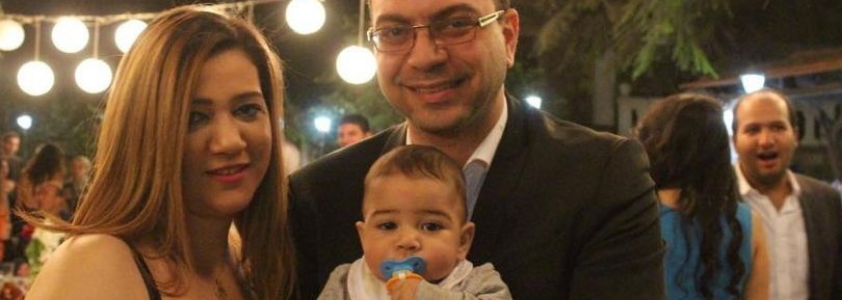Amal Fathy is women’s rights activist and a former member of the April 6 Youth Movement. She was arrested and sentenced to two years in prison for posting a Facebook video about rampant sexual harassment in Egypt. She also faces charges under a separate case, in which she was questioned about her husband’s non-governmental organization.
Amal Fathy was arrested on May 11, 2018 for posting a video on Facebook in which she denounced the Egyptian government for failing to protect women against sexual harassment. She remained in pre-trial detention for six months until she was released on bail and kept under house arrest on December 27, 2018. Her two-year sentence was upheld three days later, and she remains at risk of being arrested and put in prison at any moment. On February 9, 2019, Amal’s house arrest was lifted on the condition that she continue to visit the local police station twice a week for four hours.
Amal is a former member of the April 6 Youth Movement—a nonviolent movement formed in 2008 that led protests against the Hosni Mubarak regime. The group was banned in 2014 by the government of Abdel Fattah al-SiSi. She is currently a member of the Egyptian Commission for Rights and Freedoms (ECRF)—an NGO that provides free legal assistance to prisoners of conscience, among other advocacy work. Her husband Mohamed Fathy is the founding director of the ECRF and has also faced harassment by the Egyptian government.
On May 9, 2018, Amal posted a 12-minute video on Facebook describing her experience with sexual harassment in Egypt. She described two incidents from that occurred within hours of each other, when “a taxi driver groped her” and “a bank guard grabbed his crotch as he made lurid comments about her.” In the video, she condemns the government for creating an environment in which sexual harassment thrives. The following day, Amal received “a wave of harassment and threats on social media, including gender-based insults and calls for her arrest,” according to Amnesty International.
On May 11, 2018, security forces raided her home. Amal and Mohamed Fathy were detained and transferred to Maadi Police Station, along with their three-year old son. Authorities released her husband and son shortly thereafter. The Maadi prosecutor ordered her detention for a 15-day period for investigation on charges of “broadcasting a video on social media to incite the overthrow of the Egyptian Regime,” “publishing a video on social media to spread false rumors” and “the misuse of social media” under criminal case No. 7991 of 2018. She was subsequently transferred to Qanater women’s prison.
On May 13, 2018, Amal was questioned by the State Security Prosecution about the April 6 Youth Movement and her husband’s human rights work. The State Security Prosecution brought additional charges against her under case No. 621 of 2018 for “joining a terrorist group and using the Internet to call for terrorist acts” and “spreading false news and rumors to disrupt public security and harm national interests.” Authorities have not made clear why these charges were leveled against her at this point in time, according to her husband.
On September 29, 2018, Amal was sentenced to two years in prison for “spreading false news” and “sharing indecent material” in relation to her Facebook video. Although she was granted the option to pay a bail of 20,000 Egyptian pounds for her release until the sentence was upheld, she remained imprisoned due to the second case. The sentence was upheld on December 30, 2018.
Amal’s health has deteriorated significantly since her detention began in Qanater women’s prison in Cairo. According to her psychiatrist’s testimony, Amal already suffers from chronic depression. On July 1, 2018, the prison’s doctor diagnosed her with paralysis of the left leg—a condition that continued for two weeks. The doctor asked that Amal be permitted to see a psychiatrist—it is unclear whether this request was granted. Per a report by the ECRF, Amal has also suffered from frequent panic attacks while in detention.

